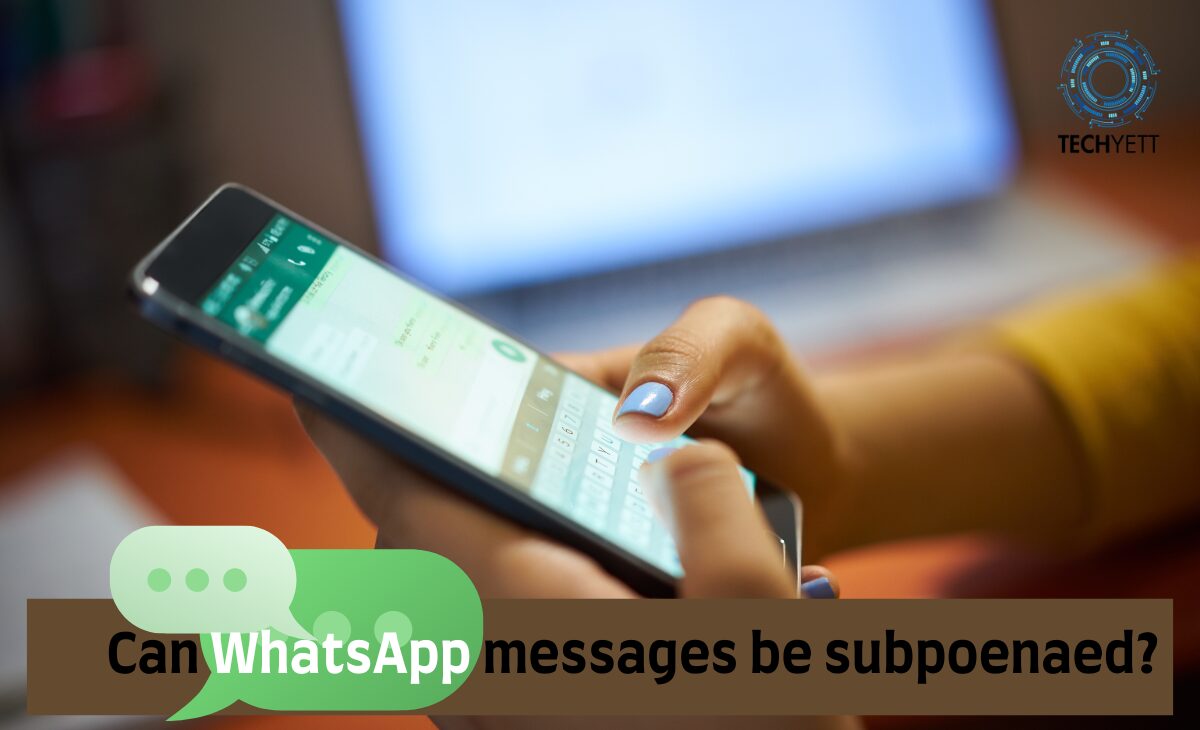WhatsApp is one of the most popular messaging apps in the world. People use it to chat, share photos, and make voice and video calls. But have you ever wondered what happens to your messages if there’s a legal issue? This article explores whether WhatsApp messages can be subpoenaed. Understanding this can help you be more aware of your digital privacy.
What is a Subpoena?
A subpoena is a legal document that orders someone to provide information or appear in court. There are two main types of subpoenas:
- Subpoena ad testificandum: This type requires a person to testify before a court or legal authority.
- Subpoena duces tecum: This one demands that a person provide documents or records.
Subpoenas are often used in criminal and civil cases to gather evidence.
Can WhatsApp Messages Be Subpoenaed?
Yes, WhatsApp messages can be subpoenaed, but there are some important points to consider. Law enforcement agencies can request access to messages if they are investigating a crime. However, WhatsApp has specific policies in place to protect user privacy.
When a subpoena is issued, WhatsApp will review it to ensure that it complies with the law. If the request is valid, WhatsApp may provide the requested information. However, it’s essential to know that WhatsApp messages are encrypted, meaning they are protected from unauthorized access.
Legal Considerations
Understanding the legal aspects of WhatsApp messages and subpoenas is crucial for users. Here are some important points:
- Privacy Laws: Different countries have various privacy laws that protect user information. For example, in the United States, the Electronic Communications Privacy Act (ECPA) governs how electronic communications are accessed.
- User Consent: In some cases, users may need to give consent before their messages can be shared. This means that if you have conversations with someone about sensitive topics, it’s wise to consider the potential legal implications.
How Subpoenas Work with WhatsApp
When law enforcement issues a subpoena to WhatsApp, the process typically involves the following steps:
- Submission: The law enforcement agency submits the subpoena to WhatsApp.
- Review: WhatsApp reviews the subpoena to ensure it meets legal requirements.
- Compliance: If the subpoena is valid, WhatsApp may provide the requested messages or data.
However, there are limitations. For instance, if a user has deleted messages or if the messages are end-to-end encrypted, accessing them may be challenging. WhatsApp cannot access messages that are not stored on their servers.
What Happens After a Subpoena?
Once WhatsApp receives a valid subpoena, the company takes the following steps:
- Notification: In some cases, WhatsApp may notify the user whose messages are being requested, but this is not guaranteed.
- Data Provision: If the subpoena is valid, WhatsApp may provide the requested information to law enforcement. This could include metadata, such as the time and date of messages, but it may not include the content of the messages due to encryption.
What If My Messages Are Subpoenaed?
If you are concerned that your WhatsApp messages might be subpoenaed, here are some things to keep in mind:
- Consider Your Privacy: Be cautious about what you share in messages. Always think about whether you are comfortable with the information being shared with others.
- Understand Your Rights: Familiarize yourself with privacy laws in your country. Knowing your rights can help you make informed decisions about your communications.
For more information about subpoenas and your rights, you can visit the Electronic Frontier Foundation.
FAQs
1. Can WhatsApp messages be used as evidence in court?
Yes, if they are subpoenaed and meet legal requirements, WhatsApp messages can be used as evidence in court.
2. How does encryption affect subpoena requests?
WhatsApp uses end-to-end encryption, which means only the sender and recipient can read the messages. This can make it difficult for law enforcement to access the content of the messages directly.
3. Will I be notified if my messages are subpoenaed?
Not always. WhatsApp may not notify users when their messages are requested through a subpoena.
4. Can I prevent my messages from being subpoenaed?
You cannot completely prevent your messages from being subpoenaed, but you can be mindful of what you share in your conversations.
Conclusion
In summary, WhatsApp messages can be subpoenaed, but there are legal protections in place to ensure user privacy. Understanding how subpoenas work and what to expect can help you make more informed choices about your digital communications. Always be aware of what you share online, as it can have legal implications.
If you want to learn more about your rights regarding digital privacy and subpoenas, consider researching privacy laws or consulting a legal expert.




